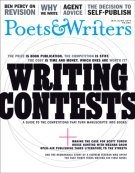Hard work and inspired acquisitions helped Curbstone Press thrive as an independent, nonprofit publisher for more than three decades, becoming well known for its devotion to international literature, especially Latin American voices. But a couple of years ago the Connecticut-based house was forced to confront what so many independent operations eventually face, after the death of its beloved founder, Alexander "Sandy" Taylor, in December 2007 and the subsequent retirement of his wife and business partner, Judy Doyle.
"At some point everyone has to contend with the succession issue," said George Gibson, cochair of Curbstone's board of directors.
In the absence of an obvious successor for Taylor and Doyle, who established the press in the basement of their Willimantic home in 1975, the Curbstone board began to consider alternative management options among publishers and nonprofit groups. At the same time, Northwestern University Press in Chicago was looking for opportunities to bolster its backlist. Deciding that their goals meshed, Curbstone and Northwestern agreed late last year to form a partnership.
"Our choices with Curbstone were either to close it or to find an alliance," said Gibson, who is also the publishing director of Bloomsbury USA. "The board felt strongly about trying to find someone who could keep the press going, not only in name but in spirit as well."
Northwestern, which itself has ushered into print works of contemporary poetry and fiction, classics, and literature in translation—including books by Nobel laureates Imre Kertész and Herta Müller—has absorbed Curbstone's backlist of more than 160 titles. The roster includes offerings by renowned poets, fiction writers, and memoirists such as Luis J. Rodriguez (whose own publishing house, Tia Chucha Press, has its books distributed by Northwestern), Martín Espada, Carolyn Forché, and 2008 Nobel Prize winner Jean-Marie Gustave Le Clézio.
Henry Carrigan Jr., a senior editor and assistant director at Northwestern, said authors with titles on the Curbstone backlist wouldn't notice much of a difference following the acquisition, though there is potential for a boost in sales. "It doesn't really change anything for them, other than that we offer a few more channels to get the word out. We're a larger press, and our sales representation is a little bit broader than Curbstone's was," he says, adding that Northwestern's imprimatur could help Curbstone titles find their way into classrooms as part of academic reading lists.
Paul Von Drasek, cochair of Curbstone's board, agreed, saying that the press's authors would benefit from the marketing muscle of Northwestern. The university press has "more manpower," he adds. "It was a four-person house at Curbstone before Sandy died." The new Northwestern imprint will try to match Curbstone's previous publication rate of eight to ten new titles each year.
Curbstone as a distinct entity will not be exiting the scene entirely, however. In addition to its publishing credentials, the press also has won widespread admiration for its nonprofit literacy programs, including collaborations with schools and arts organizations in Connecticut, and the board is discussing ways to perpetuate the press's relationship with the community. "Curbstone's mission still has resonance," Gibson and Von Drasek wrote last December, in a letter addressed to supporters of the press, "and Curbstone hopes to continue its work in literacy and educational outreach in eastern Connecticut in some form in the future."
Kevin Canfield is a freelance writer in New York City.









